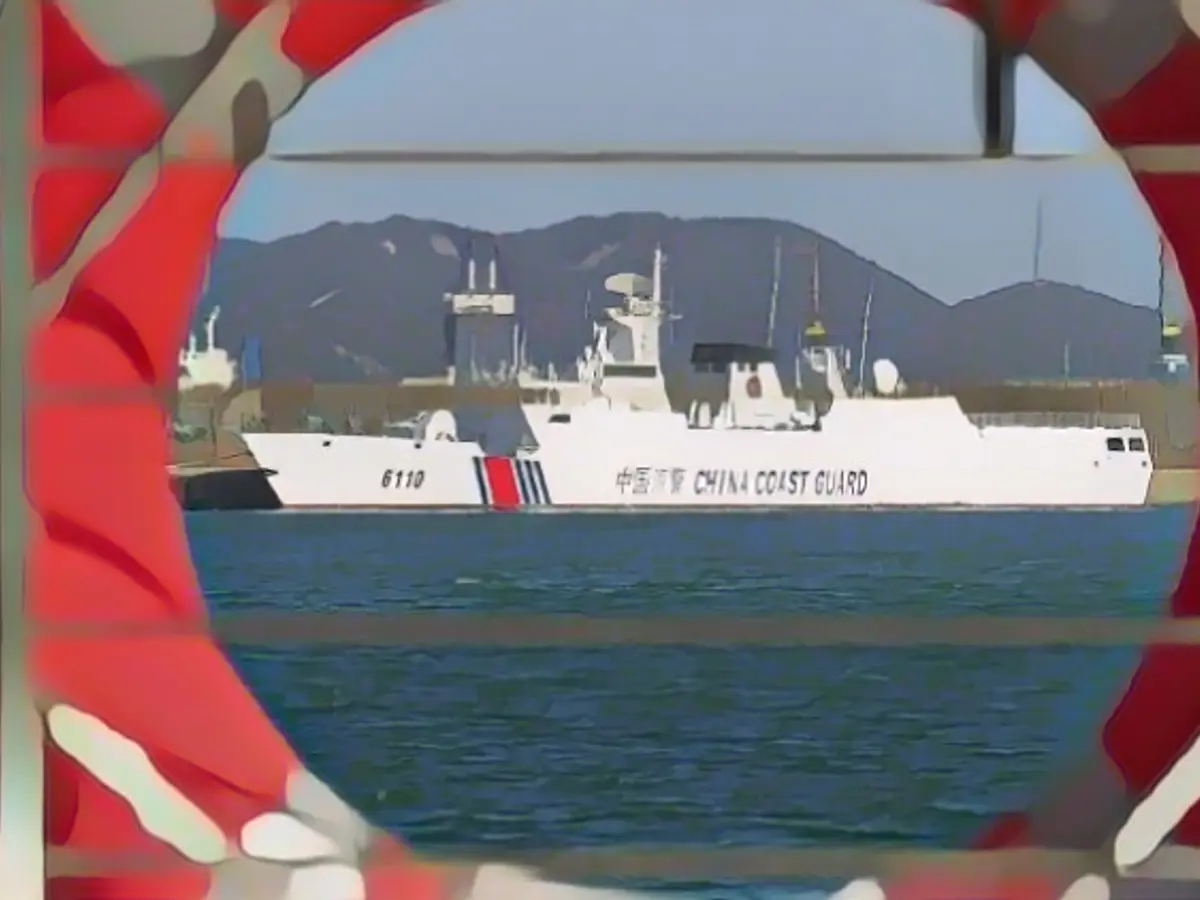Ships collide in the South China Sea
Two ships collide in the South China Sea and it immediately becomes political: because it involves a boat from the Philippines and one from the Chinese coast guard - in an area that both states claim as their own.
A Philippine boat and a Chinese coast guard vessel have collided on a disputed reef in the South China Sea. According to both sides, the incident occurred on Sunday during a Philippine supply mission for a small military post on Second Thomas Reef, which is part of the Spratly Islands. Manila and Beijing blamed each other for the incident in the sea area claimed by both countries. There had already been similar incidents in the fall.
The Philippine authorities stated that Chinese ships had "harassed and blocked two Philippine supply ships and conducted dangerous maneuvers" on Sunday. A Chinese coast guard vessel "rammed" one of the supply ships. A Chinese ship also used water cannons against the two supply ships and an escort ship of the Philippine Coast Guard. The engine of one of the supply ships was "severely damaged" and the coast guard vessel was also damaged.
The Chinese coast guard, on the other hand, blamed the Philippine ship for the "deliberate collision" with the Chinese ship. The Philippine ship had first ignored several clear warnings, then "suddenly" changed course and collided with the coast guard vessel. "The responsibility lies entirely with the Philippine side," explained the Chinese coast guard.
The Hague ruled against China
It was only on Saturday that the Philippines accused the Chinese coastguard of using water cannons to "obstruct" three boats that were delivering provisions to Filipino fishing boats near Scarborough Reef off the main island of Luzon. In October, ships from both countries also collided not far from the Spratley Islands - both countries blamed each other then too. China claims practically the entire South China Sea for itself. Brunei, Indonesia, Malaysia, the Philippines and Vietnam also lay claim to parts of the sea area, which is of enormous strategic and economic importance to the littoral states.
In 2016, the International Court of Arbitration in The Hague declared some of the Chinese claims to be unlawful. However, China does not recognize the ruling. China seized control of Scarborough Reef in 2012. Since then, Beijing has sent patrol boats to the area, which, according to information from Manila, prevent Philippine fishing boats from entering the fish-rich waters of the lagoon.
Read also:
- Year of climate records: extreme is the new normal
- Precautionary arrests show Islamist terror threat
- SPD rules out budget resolution before the end of the year
- Numerous oil, gas and coal lobbyists at climate conference
- The collision between the Philippine and Chinese ships in the South China Sea is further escalating tensions, as both countries claim sovereignty over the disputed waters, such as Second Thomas Reef in the Spratly Islands.
- Following the incident, the Chinese coast guard claimed that the Philippine ship deliberated collided with their vessel after ignoring several warnings and suddenly changing course, while the Philippine authorities accused Chinese ships of harassment and dangerous maneuvers.
- In response to these ongoing disagreements, the Philippines has previously accused Chinese ships of using water cannons to obstruct their fishing boats near Scarborough Reef and claimed that Chinese patrol boats prevent Philippine fishermen from accessing the rich fishing grounds in the lagoon, further highlighting the territorial disputes and tensions in the South China Sea.
Source: www.ntv.de








